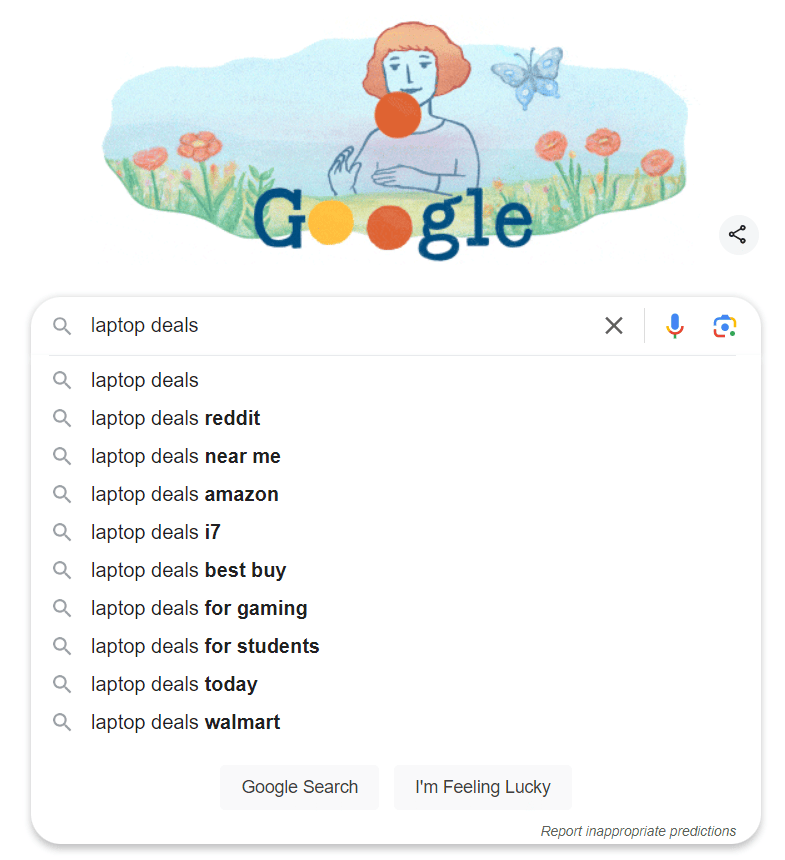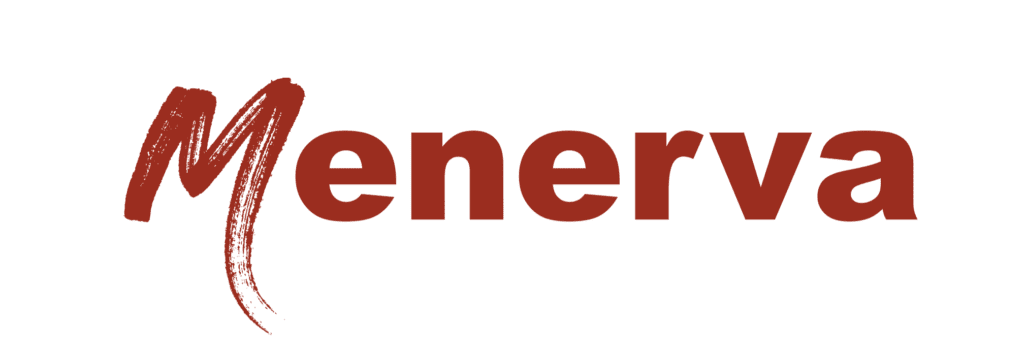What Are Keywords in SEO?
Keywords are the words and phrases that users type into search engines like Google when searching for information, products, or services. For example, someone looking to buy a new laptop might search “best budget laptops” or “laptop deals.” Those phrases are keywords.
The keyword for this article, for example, is “what are keywords in SEO.”
When someone searches a keyword phrase, search engines like Google display lists of web pages in the search results containing those keywords that are relevant to the search. Where your web page ranks in the search results for a keyword depends on multiple SEO factors, including how well your content targets those keywords.
The better optimized your pages are for targeted keyword phrases—through elements like content, titles, URLs, etc.—the higher your pages may rank in search engines. Higher rankings tend to result in more traffic, visibility, and potential customers. That makes keyword optimization extremely valuable for SEO.
What did you search to get to this article? That keyword directly led you to the information you were looking for. That’s how keywords work.

Types of Keywords in SEO
There are a few main types of keywords to be familiar with for SEO:
- Head keywords: The primary keyword or phrase targeted on a page is typically included in the page’s title and throughout the content.
- Long-tail keywords: Longer and more specific keyword phrases, usually comprising 3-5 words. These tend to have less competition but also lower search volume. For example, “best budget laptops under $300.”
- Short-tail keywords: Shorter, more general keywords or phrases, generally 1-3 words. These have higher competition but also higher search volume. For example, “laptop deals.”
- Branded keywords: Keywords that include a brand or company name. Like “Apple laptops.” Optimizing for these helps associate your brand with keywords in your niche.
Essentially, the best approach is to focus on a healthy mix of these types tailored to your goals and audience. A balanced mix of long- and short-tail keywords balanced together is an excellent place to start with your content plan.

Conducting Keyword Research
The first step to implementing keywords is researching and analyzing which keyword phrases are most relevant for targeting. Here are some tips:
- Use Google’s Keyword Planner and other tools to discover new keyword ideas based around topics and search trends.
- Consider the keywords that are ranking well for your competitors. These may also be good options to target.
- Identify keywords that align with your products, services, and audience needs. Prioritize these for optimization.
- Group keywords by topic or category to help plan content around keyword themes.
- Analyze factors like search volume and competition to estimate the difficulty of ranking for different keywords.
Conducting thorough keyword due diligence will provide the required insights to create an effective content optimization strategy.
Optimizing Pages for Keyword Targeting
Once you’ve identified the keywords you want to target, the next step is optimizing your web pages around those keywords. This includes:
- Adding keywords in your page title tags and meta description tags. Pages with titles and meta descriptions relevant to searches are more enticing to click on in search engines.
- Incorporating target keywords in strategic places throughout your content—like in the first 100 words of text, in headers, image names and captions, URLs, etc. This enables search engines to understand relevance. But be careful not to over-optimize or “keyword stuff.” The content should still be readable and useful.
- Using keywords in your navigation menu and internal links to signal relevancy.
- Adding related keywords in alt text tags on images to associate visuals with keyword topics.
- Optimizing page URLs to include primary keywords where logical. For example, “www.website.com/best-budget-laptops.”
By effectively working keywords into multiple elements, you can significantly boost your SEO and rankings for those terms.

Measuring and Monitoring Results
An important final piece is tracking keyword performance to identify which terms drive traffic or conversions. Use Google Analytics, Search Console, and rank tracking software to monitor SEO metrics like:
- Impressions and clicks for keywords in search engine results pages (SERPs)
- Click-through rates (CTRs), which indicate how enticing your listings are to searchers
- Pages per session and time on site from organic searches, showing engagement
- Conversions generated from keyword traffic
- Page rankings in search engines for target keywords
Use what you learn to refine your targeting strategy. Eliminate poor performers, optimize promising keywords driving quality traffic, and find new keyword opportunities.
Leveraging keywords effectively takes research, planning, strategic content creation, and constant analysis. But it is one of the most worthwhile investments for elevating your SEO success.
How Menerva Digital Can Help
We can help with smart keyword optimization to build organic search visibility in your niche, attract qualified website visitors, and ultimately grow your business. Contact us today for more information.





